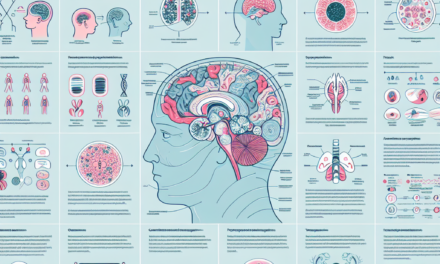Transforming Revenue Cycle Management: Customer Insights on AI’s Impact | Nextech
In the rapidly evolving landscape of healthcare, Revenue Cycle Management (RCM) has emerged as a critical component for ensuring financial sustainability and operational efficiency. As healthcare organizations strive to optimize their revenue processes, the integration of Artificial Intelligence (AI) has become a game-changer. This article delves into the transformative impact of AI on RCM, drawing insights from customer experiences and industry trends, particularly through the lens of Nextech, a leader in healthcare technology solutions.
The Evolution of Revenue Cycle Management
Revenue Cycle Management encompasses the financial processes that healthcare organizations use to track patient care episodes from registration and appointment scheduling to the final payment of a balance. The evolution of RCM has been influenced by various factors, including regulatory changes, technological advancements, and shifting patient expectations.
Historically, RCM was a manual, labor-intensive process that involved significant paperwork and human intervention. However, with the advent of electronic health records (EHRs) and digital billing systems, the landscape began to shift. The introduction of AI technologies has further accelerated this transformation, enabling organizations to streamline operations, reduce costs, and enhance patient satisfaction.
Key Drivers of Change in RCM
- Regulatory Compliance: The healthcare industry is subject to stringent regulations, necessitating accurate billing and coding practices. AI can help organizations stay compliant by automating these processes and reducing human error.
- Patient-Centric Care: As patients take a more active role in their healthcare decisions, organizations must adapt their RCM strategies to meet evolving expectations for transparency and convenience.
- Cost Containment: Rising operational costs have prompted healthcare organizations to seek innovative solutions to improve efficiency and reduce waste in their revenue cycles.
- Data-Driven Decision Making: The ability to analyze vast amounts of data in real-time allows organizations to make informed decisions that enhance financial performance.
- Technological Advancements: The integration of AI, machine learning, and automation tools has revolutionized RCM, enabling organizations to optimize workflows and improve accuracy.
The Role of AI in Revenue Cycle Management
AI technologies are reshaping RCM by automating routine tasks, enhancing data analysis, and improving patient engagement. The following sections explore the specific ways in which AI is impacting RCM.
1. Automation of Administrative Tasks
One of the most significant benefits of AI in RCM is the automation of administrative tasks. Traditional RCM processes often involve repetitive tasks such as data entry, claims processing, and payment posting, which are time-consuming and prone to human error. AI can streamline these processes by automating routine tasks, allowing staff to focus on more complex issues.
For example, AI-powered systems can automatically extract data from EHRs and populate billing systems, reducing the need for manual data entry. This not only speeds up the billing process but also minimizes errors that can lead to claim denials. According to a study by the American Hospital Association, hospitals that implemented AI-driven automation in their RCM processes saw a 30% reduction in claim denials.
Moreover, AI can assist in identifying patterns in billing data that may indicate potential issues, such as coding errors or discrepancies in patient information. By flagging these issues early in the process, organizations can take corrective action before claims are submitted, further reducing the risk of denials and delays in payment.
2. Enhanced Data Analytics and Reporting
Data analytics is a cornerstone of effective RCM, and AI enhances this capability by providing deeper insights into financial performance. AI algorithms can analyze vast amounts of data from various sources, including EHRs, billing systems, and patient feedback, to identify trends and patterns that may not be immediately apparent.
For instance, AI can help organizations track key performance indicators (KPIs) such as days in accounts receivable, claim denial rates, and patient payment trends. By leveraging predictive analytics, organizations can forecast future revenue and identify potential challenges before they arise. This proactive approach enables healthcare organizations to make informed decisions that drive financial performance.
A case study involving a large hospital system that implemented AI-driven analytics revealed a 25% improvement in revenue cycle efficiency within the first year. By utilizing AI to analyze billing data, the organization was able to identify areas for improvement and implement targeted strategies to enhance revenue collection.
3. Improved Patient Engagement and Communication
Patient engagement is a critical aspect of RCM, as satisfied patients are more likely to pay their bills on time. AI technologies can enhance patient communication by providing personalized experiences and timely information. For example, AI chatbots can assist patients with billing inquiries, appointment scheduling, and payment options, reducing the burden on administrative staff.
Additionally, AI can analyze patient data to identify individuals who may be at risk of non-payment due to financial constraints. By proactively reaching out to these patients with tailored payment plans or financial assistance options, organizations can improve collection rates and enhance patient satisfaction.
A survey conducted by Nextech found that healthcare organizations that implemented AI-driven patient engagement tools experienced a 40% increase in patient satisfaction scores. This improvement can be attributed to the enhanced communication and support provided to patients throughout the billing process.
4. Streamlined Claims Management
Claims management is a critical component of RCM, and AI can significantly streamline this process. Traditional claims management often involves manual review and resubmission of denied claims, which can be time-consuming and costly. AI can automate the claims review process by analyzing claims data and identifying common reasons for denials.
For example, AI algorithms can flag claims that are likely to be denied based on historical data, allowing organizations to address potential issues before submission. This proactive approach can lead to a significant reduction in claim denials and faster reimbursement cycles.
A healthcare organization that adopted AI-driven claims management reported a 50% reduction in claim denials within six months. By leveraging AI to analyze claims data and identify trends, the organization was able to implement targeted strategies to improve the accuracy of submissions.
5. Financial Forecasting and Revenue Optimization
Accurate financial forecasting is essential for effective RCM, and AI can enhance this capability by providing real-time insights into revenue trends. By analyzing historical data and current market conditions, AI algorithms can generate accurate revenue forecasts that help organizations plan for the future.
For instance, AI can analyze patient volume trends, payer mix, and reimbursement rates to predict future revenue streams. This information is invaluable for budgeting and resource allocation, enabling organizations to make informed decisions that drive financial performance.
A case study involving a multi-specialty clinic that implemented AI-driven financial forecasting revealed a 20% increase in revenue within the first year. By leveraging AI to analyze financial data and identify growth opportunities, the clinic was able to optimize its revenue cycle and enhance overall financial performance.
Challenges and Considerations in Implementing AI in RCM
While the benefits of AI in RCM are significant, organizations must also navigate several challenges when implementing these technologies. Understanding these challenges is crucial for successful integration and maximizing the impact of AI on revenue cycle processes.
1. Data Privacy and Security Concerns
As healthcare organizations increasingly rely on AI to analyze patient data, concerns about data privacy and security have become paramount. The Health Insurance Portability and Accountability Act (HIPAA) mandates strict regulations regarding the handling of patient information, and organizations must ensure that their AI systems comply with these regulations.
To address these concerns, organizations should implement robust data security measures, including encryption, access controls, and regular audits. Additionally, it is essential to work with AI vendors who prioritize data privacy and have a proven track record of compliance with industry regulations.
2. Integration with Existing Systems
Integrating AI technologies with existing RCM systems can be a complex process. Many healthcare organizations rely on legacy systems that may not be compatible with modern AI solutions. This can lead to challenges in data sharing and interoperability, hindering the effectiveness of AI-driven initiatives.
To overcome these challenges, organizations should conduct a thorough assessment of their existing systems and identify areas for improvement. Collaborating with technology partners who specialize in healthcare integration can also facilitate a smoother transition to AI-driven RCM processes.
3. Change Management and Staff Training
The successful implementation of AI in RCM requires a cultural shift within the organization. Staff members may be resistant to change, particularly if they perceive AI as a threat to their jobs. To address these concerns, organizations should prioritize change management and provide comprehensive training to staff on the benefits and functionalities of AI technologies.
Engaging staff in the implementation process and highlighting the ways in which AI can enhance their roles can foster a positive attitude toward change. Additionally, ongoing training and support are essential to ensure that staff members are equipped to leverage AI tools effectively.
4. Cost of Implementation
Implementing AI technologies can require a significant upfront investment, which may be a barrier for some healthcare organizations. However, it is essential to view this investment as a long-term strategy for improving financial performance and operational efficiency.
Organizations should conduct a cost-benefit analysis to assess the potential return on investment (ROI) associated with AI implementation. By demonstrating the long-term financial benefits of AI-driven RCM processes, organizations can secure buy-in from stakeholders and justify the initial costs.
5. Continuous Monitoring and Improvement
The implementation of AI in RCM is not a one-time event; it requires ongoing monitoring and improvement to ensure optimal performance. Organizations should establish key performance indicators (KPIs) to track the effectiveness of AI-driven initiatives and make data-driven adjustments as needed.
Regularly reviewing and refining AI algorithms based on real-world performance can enhance their accuracy and effectiveness over time. Additionally, soliciting feedback from staff and patients can provide valuable insights into areas for improvement and help organizations stay responsive to changing needs.
Conclusion: The Future of Revenue Cycle Management with AI
The integration of AI into Revenue Cycle Management represents a significant opportunity for healthcare organizations to enhance operational efficiency, improve financial performance, and elevate patient satisfaction. By automating administrative tasks, enhancing data analytics, and improving patient engagement, AI is transforming the way organizations manage their revenue cycles.
However, successful implementation requires careful consideration of challenges such as data privacy, system integration, change management, and ongoing monitoring. By addressing these challenges proactively and leveraging customer insights, organizations can maximize the impact of AI on their RCM processes.
As the healthcare landscape continues to evolve, organizations that embrace AI-driven RCM strategies will be better positioned to thrive in an increasingly competitive environment. The future of healthcare finance is here, and it is powered by AI.





